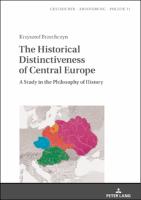The Historical Distinctiveness of Central Europe
A Study in the Philosophy of History
Abstract
The aim of this book is to explain economic dualism in the history of modern Europe. The emergence of the manorial-serf economy in the Bohemia, Poland, and Hungary in the 16th and the 17th centuries was the result of a cumulative impact of various circumstantial factors. The weakness of cities in Central Europe disturbed the social balance – so characteristic for Western-European societies – between burghers and the nobility. The political dominance of the nobility hampered the development of cities and limited the influence of burghers, paving the way to the rise of serfdom and manorial farms. These processes were accompanied by increased demand for agricultural products in Western Europe
Keywords
Brzechczyn; cascade process; Central; Distinctiveness; economic dualism; economical backwardness; Europe; Historical; History; manorial-serf economy; modeling; modern history; Philosophy; StudyDOI
10.3726/b17029ISBN
9783631813713, 9783631813720, 9783631813737, 9783631809907, 9783631813713Publisher website
https://www.peterlang.com/Publication date and place
Bern, 2020Series
Studies in History, Memory and Politics, 31Classification
History


 Download
Download Web Shop
Web Shop